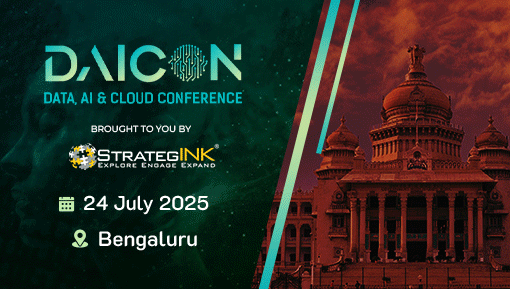
In this article, we delve into the transformative potential of AI in the realm of recruitment. Manikanth Challa, Founder and CEO of Workruit addresses pressing questions surrounding the adaptation of AI to cater to industry-specific needs, enhancing the visibility of job seekers, addressing skill gaps, mitigating biases in the hiring process, navigating regulatory challenges, and bridging the gap between education and industry requirements. Join us as we uncover the reshaping of the landscape of recruitment with forward-thinking strategies and technological innovation.
Q1. How is AI being adapted to better understand and support the industry-specific needs/jargon in resume building and job matching?
Manikanth: AI is revolutionizing resume building and job matching by leveraging Natural Language Processing (NLP) and machine learning. NLP helps AI grasp the specific language used in various industries within resumes and job postings. This allows AI to pinpoint relevant skills, experience, and keywords, empowering job seekers to tailor their resumes more effectively and connect them with fitting job opportunities.
Q2. In what ways can AI improve the visibility of job seekers’ resumes to potential employers, particularly for niche roles or industries or even connecting freelancers with gigs that match their skills and preferences while ensuring fair compensation?
Manikanth: To improve the visibility of job seekers’ resumes to potential employers, especially for niche roles or industries, AI can utilize targeted job posting algorithms. These algorithms match job postings with resumes based on specific criteria, such as skills, experience, and location. Additionally, AI-powered resume screening tools can help recruiters quickly identify qualified candidates by analyzing resumes for relevant keywords and qualifications. For connecting freelancers with gigs that match their skills and preferences while ensuring fair compensation, AI platforms can use data analytics to match freelancers with suitable projects based on their skills, experience, and availability. AI can also analyze market rates and project requirements to ensure that freelancers are offered fair compensation for their work. Additionally, AI can facilitate communication between freelancers and employers, streamlining the hiring process and improving the overall experience for both parties.
Q3. Considering the skill gap challenge, how can AI-driven tools assist in identifying and recommending upskilling opportunities for job seekers to better align with market demands?
Manikanth: AI-driven tools can assist in identifying and recommending upskilling opportunities for job seekers by analyzing market trends, job postings, and individual skills gaps. These tools can recommend relevant courses, certifications, or training programs based on the job seeker’s current skills and the skills in demand in the market. By leveraging AI, job seekers can access personalized recommendations to enhance their skills and increase their marketability in their desired field.
Q4. Generally, AI-induced program is questioned for ethical practices and biases. Can AI contribute to creating a more inclusive job market by reducing biases in resume screening and candidate selection processes?
Manikanth: Yes, AI can contribute to creating a more inclusive job market by reducing biases in resume screening and candidate selection processes. AI-powered tools can screen resumes based on qualifications and skills, rather than factors such as gender, race, or age. By using objective criteria, AI can help mitigate unconscious biases that may affect human decision-making. Additionally, AI can anonymize resumes during the screening process, further reducing the impact of biases. Overall, AI has the potential to promote fairness and diversity in the job market by improving the objectivity of the screening and selection processes.
Q5. Given the evolving regulatory landscape in India around data privacy and protection, how can AI navigate these challenges to offer innovative yet compliant HR solutions?
Manikanth: AI can navigate data privacy and protection challenges by implementing robust data encryption and anonymization techniques. Additionally, AI solutions can adhere to regulatory guidelines by obtaining explicit consent from users before collecting and processing their data. By adopting a privacy-by-design approach, AI can ensure that HR solutions are compliant with data protection laws while still offering innovative features.
Q6. What role can AI play in bridging the gap between educational institutions and industry needs, ensuring graduates are better prepared for the job market?
Manikanth: AI can play a significant role in bridging the gap between educational institutions and industry needs by analyzing job market trends and identifying the skills and competencies in demand. AI-driven tools can provide feedback to educational institutions on their curriculum, helping them align their programs with industry requirements. Additionally, AI can offer personalized learning experiences to students, helping them acquire relevant skills and knowledge for the job market. By leveraging AI, educational institutions can better prepare graduates for the workforce, ultimately reducing the skills gap.
Q7. What major trends do you foresee in the evolution of HR technology over the next decade, particularly regarding AI’s role in recruitment and talent management?
Manikanth: Over the next decade, HR technology is likely to witness several major trends, particularly in AI’s role in recruitment and talent management. One trend is the increased use of AI-powered chatbots for candidate engagement and communication, streamlining the recruitment process. AI algorithms will become more sophisticated, enabling them to analyze large volumes of data to identify top talent and predict future performance more accurately.
Another trend is the rise of AI-driven talent analytics, allowing HR professionals to make data-driven decisions regarding hiring, development, and retention strategies. AI will also play a crucial role in diversity and inclusion efforts by helping to reduce bias in recruitment and performance evaluation processes. Additionally, AI-powered tools will enable more personalized learning and development experiences for employees, enhancing their skills and career growth.
AI will continue to improve employee engagement and satisfaction through personalized feedback and recognition programs. Finally, the integration of AI with other emerging technologies such as blockchain and virtual reality may further revolutionize HR processes, creating more efficient and effective talent management systems.






